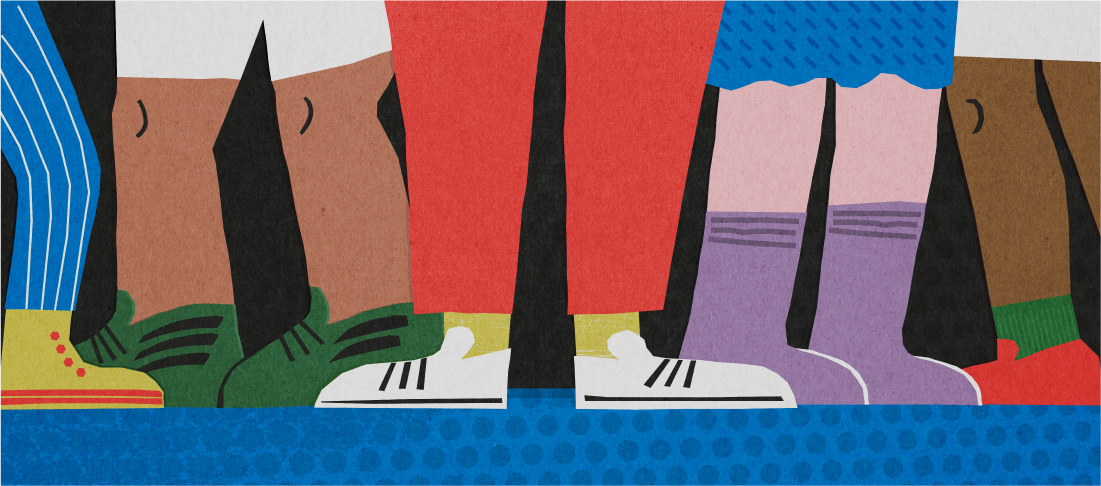
In class, on the bus, standing in line — the instances are numerous and the contexts it happens in varies. Unfortunately, too many students experience their personal spaces being invaded, and that’s not okay.
Take, for example, last week during a class. As I was trying to concentrate on the professor’s lecture, there was a loud thump. I looked around and saw, to my immediate right, on the metal bar that holds a row of chairs together, the shoes and legs belonging to a classmate sitting a row behind.
I was a bit surprised. Clearly the small space that separates two chairs, in an already cramped class seating arrangement, is not meant for the relaxation purposes of the person sitting behind. I thought that once my classmate realized this seemingly obvious fact they would remove their legs.
But they didn’t. It was fairly clear to me and the student to my right — who also got to share in this unfortunate situation — that our personal space was being interfered with.
The rest of the lecture — a good 40 minutes — passed by in uncomfortable silence.
While I tried my level best to pay attention to the content of the class, a significant amount of my focus was diverted to the shoes and legs that remained way too close for comfort. I tried to make eye contact with the person or shift a few times in my chair to draw attention to the situation.
But nothing changed, and I realized that nothing would, because the person behind us thought what they were doing was completely okay.
In my frustration after class, I ended up talking to several students about the situation. Each time, I found many of the students I spoke to had faced similar uncomfortable situations on campus.
Another commonality between our experiences was that we didn’t quite know how to react in the situation. Despite knowing what was happening shouldn’t be happening, we froze.
When I reflect on all these experiences, I realize that, despite the people and places being different, it all boils down to the normalization of not respecting personal space.
Changing this normalization will require a shift in campus culture, starting with a firm acknowledgement that everyone’s personal space, including your own, should be respected.
This respect goes hand-in-hand with an awareness of how your words and actions impact others.
A good place to start is with ourselves. During the day, frequently check in with yourself. How have your actions and words impacted others? When you are in group settings or surrounded by people, ask yourself — are you respecting your own and others’ personal space?
If you find yourself unsure of the answer to the question, maybe that’s an answer in itself. And if you find yourself invading someone’s personal space, the best place to start is by genuinely apologizing, promptly rectifying your mistake and learning from it so it doesn’t happen again.
On the other hand, if you find yourself in an uncomfortable situation or notice someone else in one, it’s important to remember that you have every right to voice your concern, even if it’s never easy to do.
Taking that advice, after that class finished, I decided that I would say something to the person. After all, much of my learning in that class had been disturbed by that individual’s action and I thought they should know.
While the string of words that exited my mouth wasn’t quite the perfect articulation of the situation, and the person didn’t even bother acknowledging their actions, I’m proud I took a stand.
Remember that we all deserve to learn, work and live in environments where our personal spaces are respected. It’s all of our jobs to make sure a positive campus culture is built and maintained.
So next time you’re in class, after you’ve set up your notes and are ready to listen to a lecture, ask yourself — what am I doing to make our spaces safer and comfortable for everyone?
—
This op-ed was written by a University of Saskatchewan undergraduate student and reflects the views and opinions of the writer. If you would like to write a reply, please email opinions@thesheaf.com. Vaidehee Lanke is a fourth-year undergraduate student studying bioinformatics and is the Opinions Editor at The Sheaf Publishing Society.
Graphic: Jaymie Stachyruk | Graphics Editor
Leave a Reply